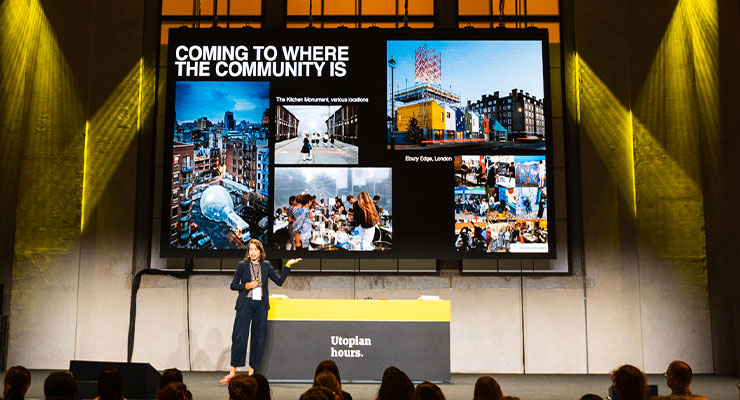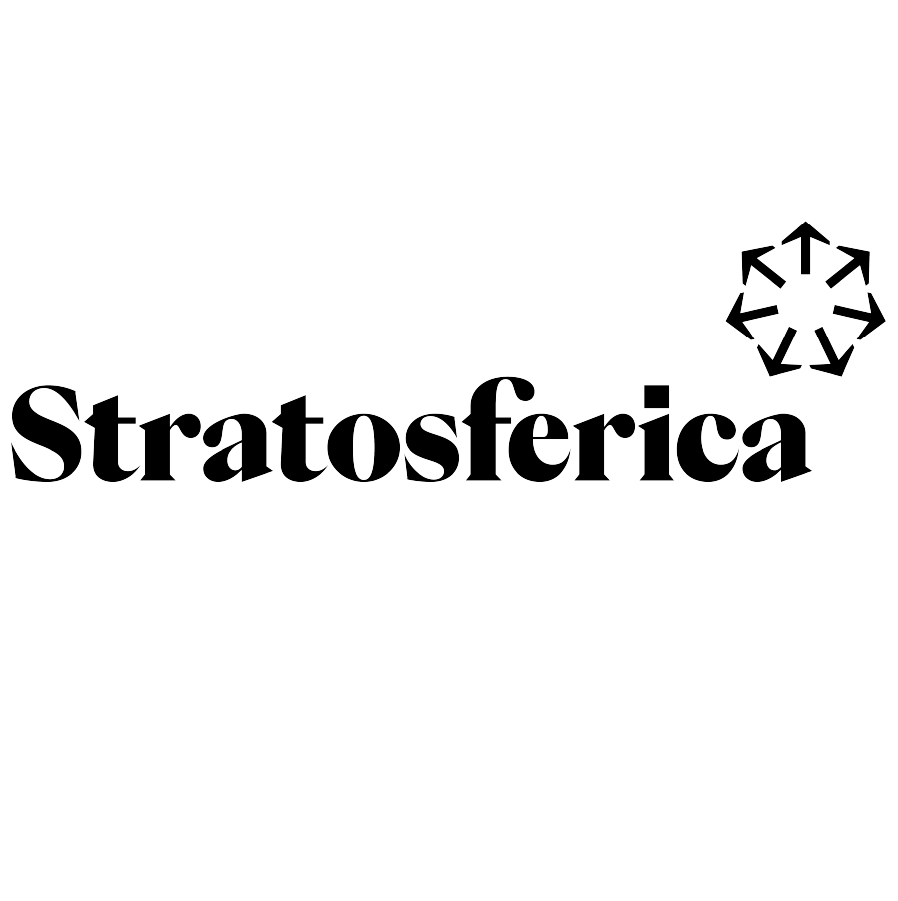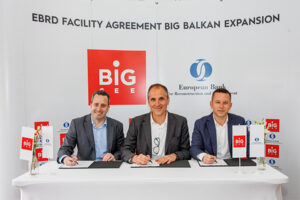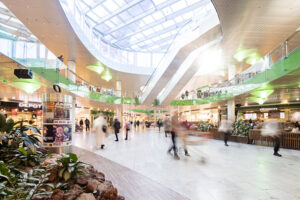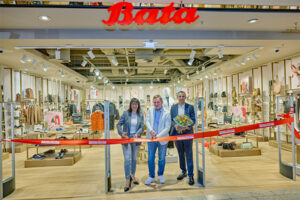ACROSS: What is the idea behind Utopian Hours?
Daniele Vaccai: When Utopian Hours took place for the first time eight years ago, it was a bold step to organize an event that was fully committed to rethinking urban culture. From the beginning, we were not a classic conference for only architects or urbanists. Of course, we have some of the biggest names from the industry on our stages. Still, we also want to learn from and discuss with independent collectives, activists, and – sometimes – visionary entrepreneurs trying to redefine how we perceive urban design.
AROSS: Why is this multidisciplinary approach so important?
Vaccai: We wanted to show an alternative way of discussing and exploring urban topics and phenomena. We are convinced that urban development is a necessary, fascinating, and multi-layered topic, especially today. We have continued to pursue this basic idea over the years and have been able to internationalize and further develop the format. Furthermore, our festival is now one of the leading events, at least in Europe, for people and experts dealing with urban issues. The word “utopian” is also clearly at the center of 2024. We show the public the new frontiers of urban innovation. We present ideas, experiences, and projects that boldly and sometimes radically redefine the concept of urban design. The protagonists of these changes show first-hand new recipes for how their cities worldwide have been transformed.
ACROSS: Parallel to last year’s conference, you started working on a “New City-Making – Manifesto.” What’s it all about?
Vaccai: Utopian Hours launches a manifesto for a new city-making that introduces new concepts and invites guests and audience to suggest keywords for a new way of conceiving human evolution. We started last year in 2023 with over 30 international speakers from the previous edition. We asked them to summarize their vision of reshaping cities by choosing one word and explaining why these words could represent a new way of city-making. The feedback was astonishing. We quickly realized that a single round was not enough. 2024, a second “New City Making – Manifesto” will be created.
Impressions from 2023
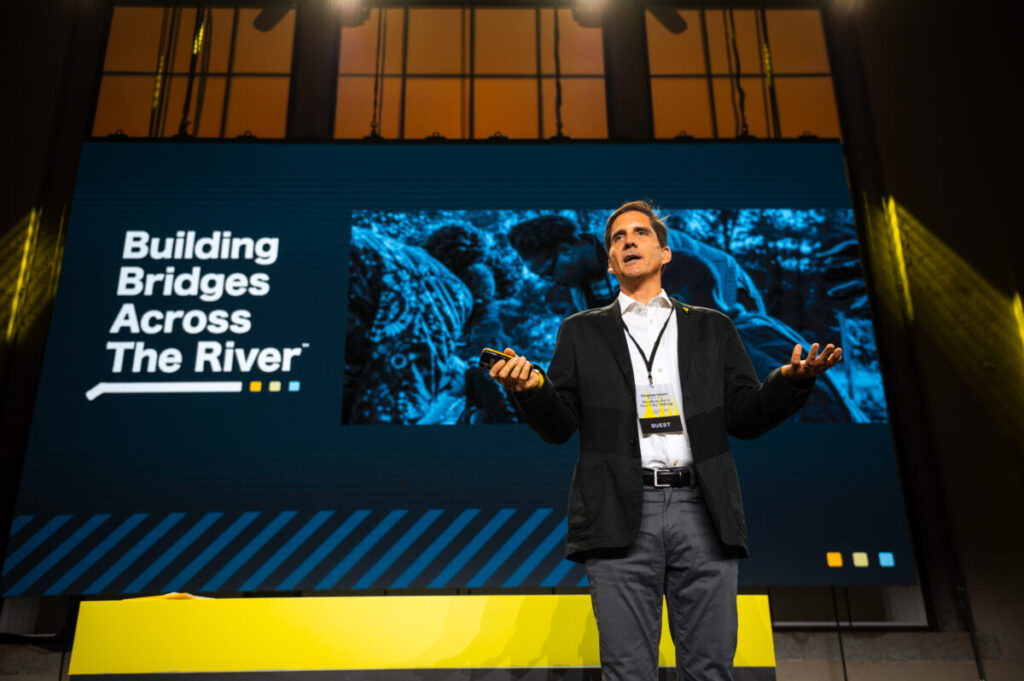
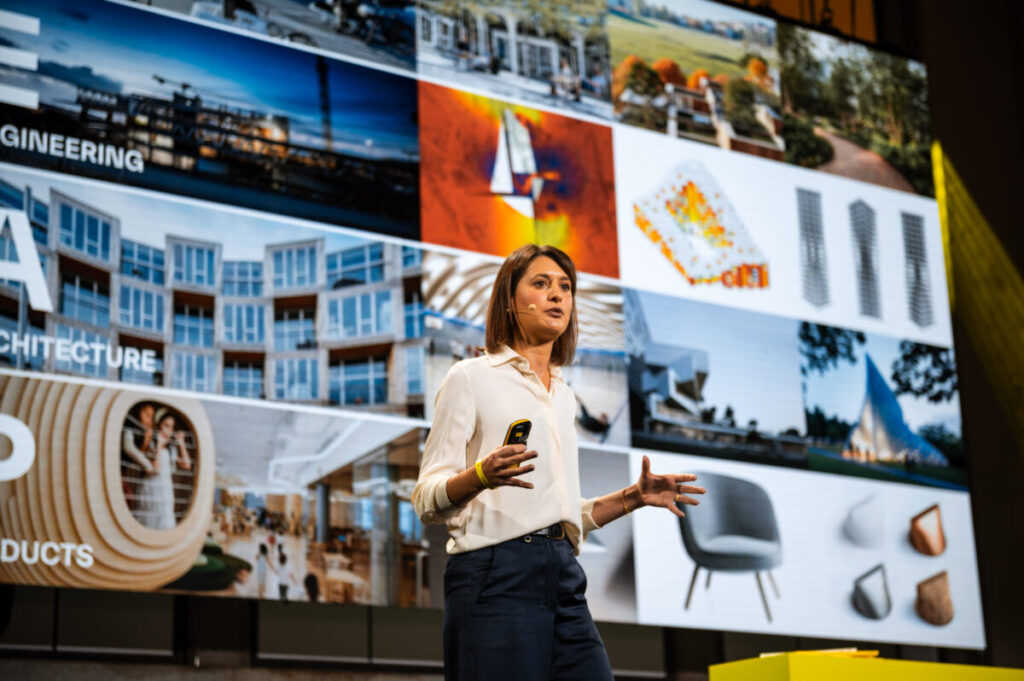
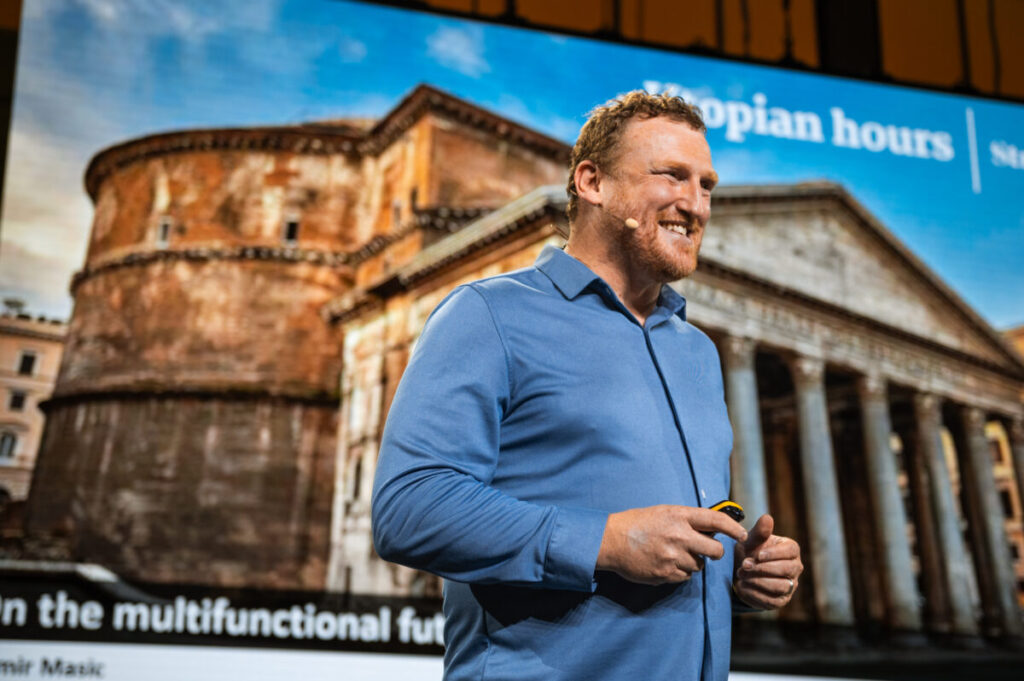
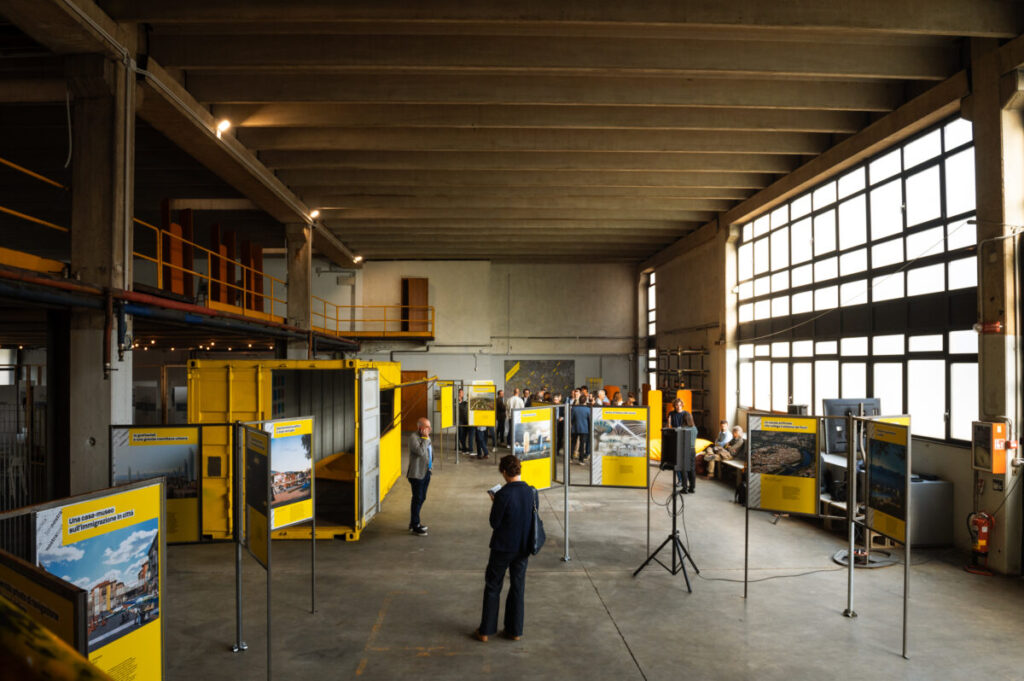
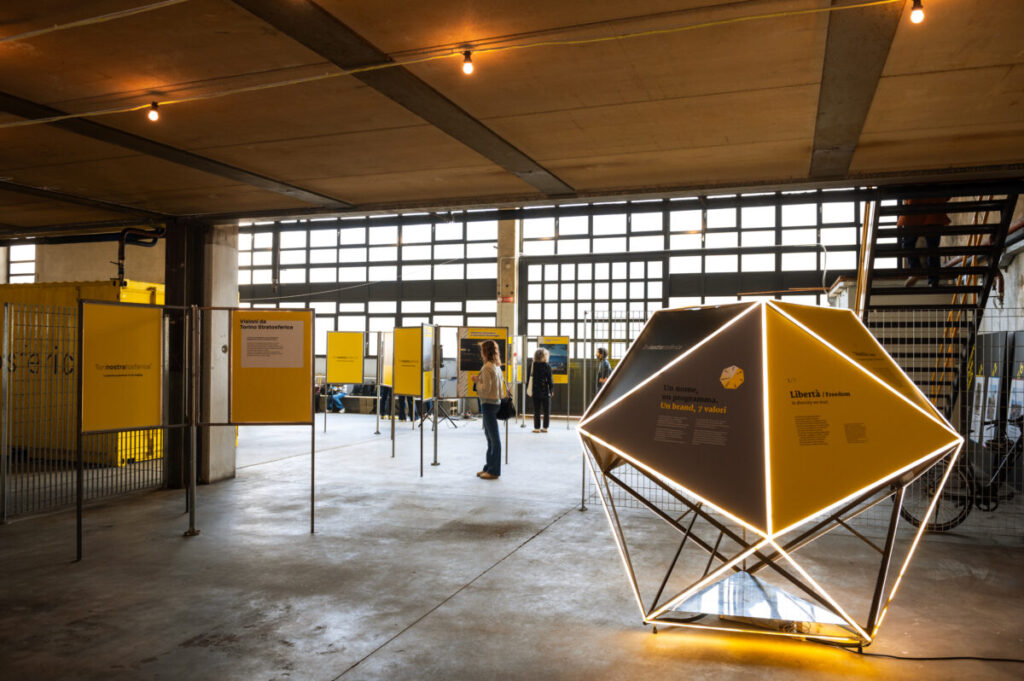
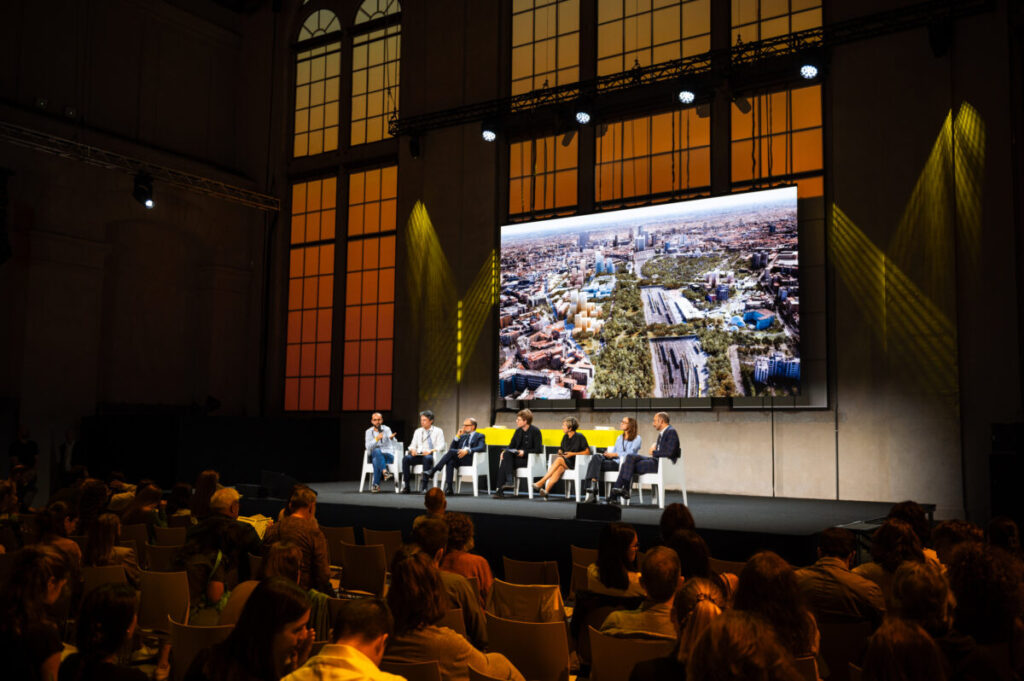
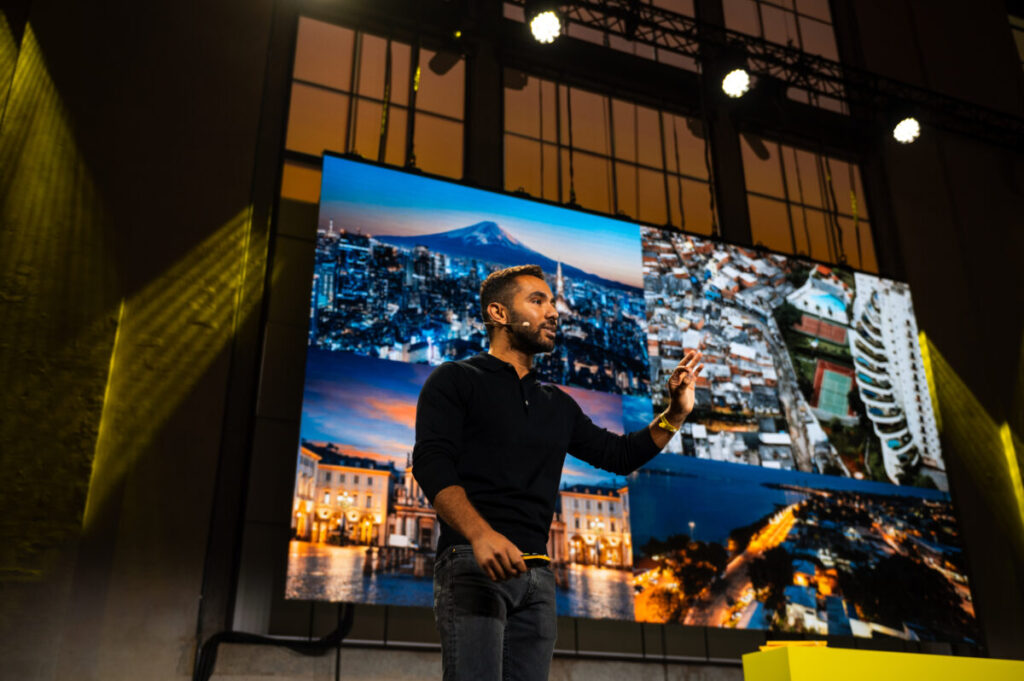
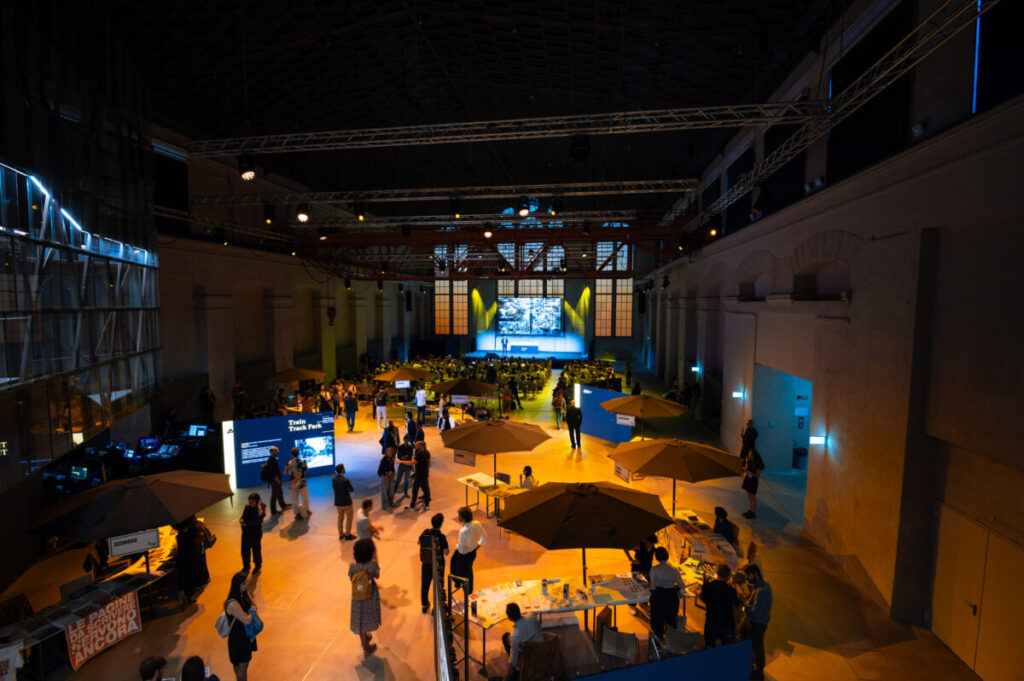
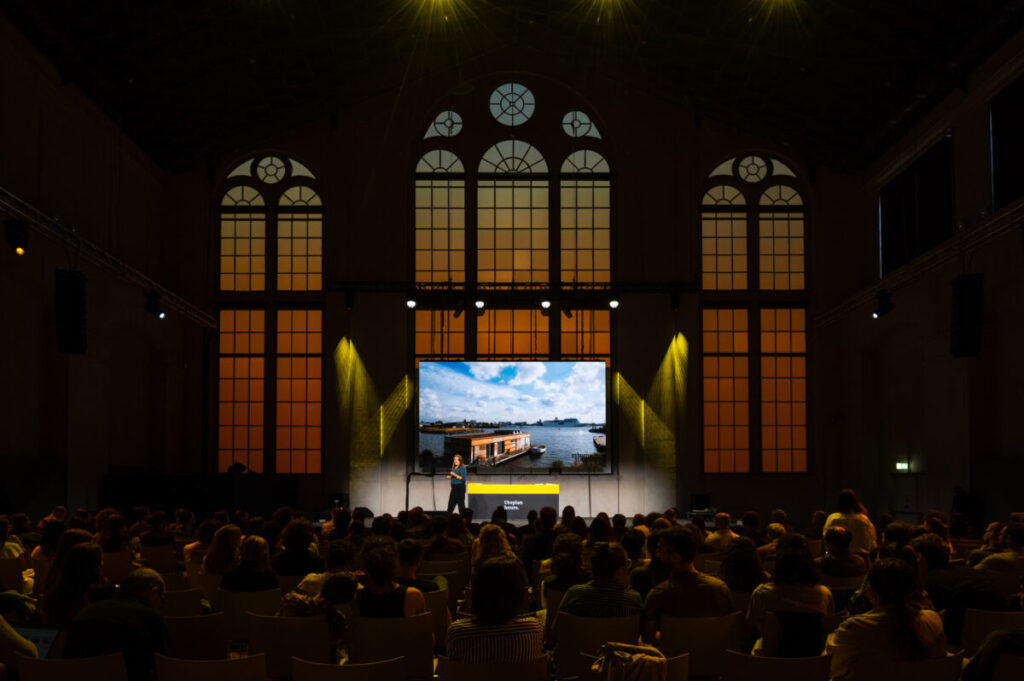
ACROSS: What is the most pressing issue regarding city-making?
Vaccai: Four big topics are crucial for people engaging in the debate:
1. Environmental threats: Many speakers and designers, architects, and independent collectives are dealing with the consequences of rapid urbanization, which is a big challenge for the globe. We want to determine to what extent the city can be a laboratory for testing new technologies. So, we talk a lot about nature-based solutions and urban ecology. One key question is: how can we redesign our cities to make them more lively and pleasant and harmonize with the rhythm of nature?
2. Inequality: We all know the number of super-rich people, and on the other hand, the number of poor people is growing. How can different classes live well within cities? What does this mean for the design of public spaces? How can communal spaces be created? Many of our speakers try to compensate for inequality in cities through concrete, actual interventions.
3. Technology: For the past two to three years, we have focused on how technologies and technological innovations can influence how we live, design, and perceive cities. In addition to Utopian Hours, Statoferica also organizes the “Future Urban Trends” event. It is a one-day event that usually takes place in Turin in March. Urban artificial intelligence is a crucial focus of this event.
4. The public sector: We explicitly give a lot of space to the public sector. How cities develop is closely linked to politics. For example, one of our keynote speakers on Friday evening is Ya-Ting Liu, the first Chief Public Realm Officer of New York.
Learn more about some of the program highlights and speakers:
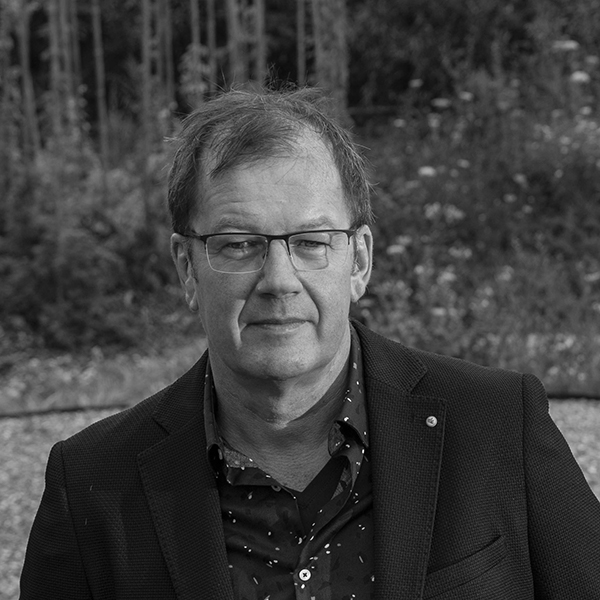
The Pioneers of Nature-Based Solutions. New techniques inspired by nature to save cities from the climate crisis
Dirk van Peijpe, De Urbanist (Rotterdam); Adapt or Sink: De Urbanisten Shows How to Tackle Climate Change
With the projects developed within De Urbanisten, Dirk van Peijpe represents the European avant-garde in the field of climate adaptation of cities. Faced with the significant environmental challenges of our time, the firm proposes an approach to urban design that focuses on ecology and Nature-Based Solutions to design increasingly efficient and sustainable cities.
How to build a city: lessons from one of the primary activators of London’s transformations over the last 20 years
Martyn Evans; Landesc+I (London); Mixed-Use Regeneration: LandsecU+I, the Floor is Yours!
Martyn Evans was the Creative Director of Cathedral Group, one of the UK’s leading property development companies, for almost twenty years. He now holds the same role for LandsecU+I: in his hands is one of the largest portfolios of regeneration projects in the country — including Mayfield in Manchester, St David’s Centre in Cardiff, Buchanan Galleries in Glasgow, and the new Hartree Quarter, a micro-city in the heart of Cambridge.
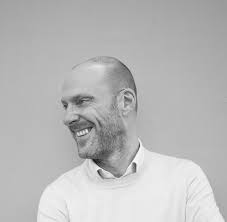
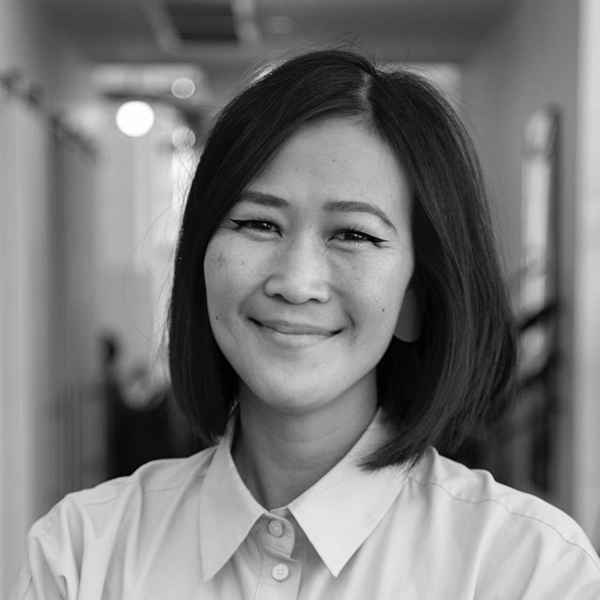
The first Chief Public Realm Officer of New York. How to revitalize cities through public spaces
Ya-ting Liu, New York Municipality (New York)
New York’s First Chief Public Realm Officer Ya-Ting Liu is New York’s first Chief Public Realm Officer. A new job title, she is responsible for coordinating the private sector and administration with one goal: to create new, welcoming, and quality public spaces. Since her appointment in February 2023, Ya-Ting Liu has launched several initiatives to activate the city’s public spaces. From the Dining Out NYC — the country’s most extensive outdoor dining program— to the redesign of 5th Avenue between Bryant Park and Central Park.
With Yes We Camp, transforming urban voids into community spaces becomes easy — a European best practice from the streets of France.
Nicolas Détrie, Yes We Camp (Marseille)
Third Places or Yes We Camp’s Recipe to Meet Urban Needs In 2013, the year of Marseille European Capital of Culture, Nicolas Détrie founded Yes We Camp. This independent organization is now among the reference points for those involved in temporary use and urban revitalization. Over the last ten years —through the involvement of local communities and by choosing a low environmental and economic impact approach— Yes We Camp has transformed many abandoned areas around France, giving life to new public spaces that are now vibrant and welcoming.
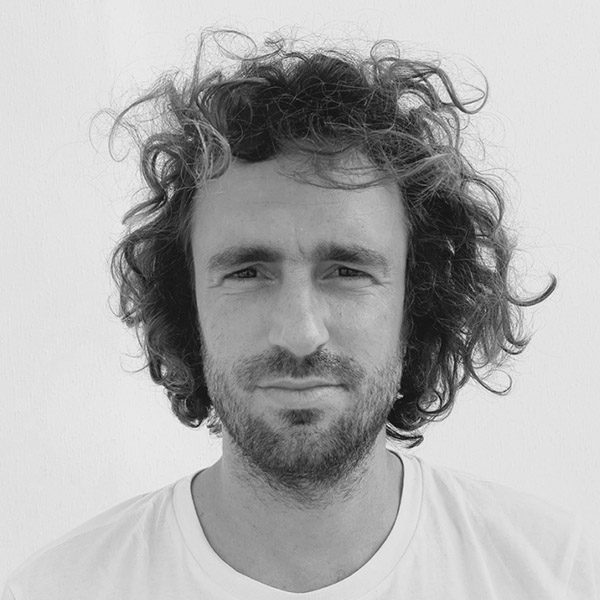
A hyper-tech town experimenting with AI: welcome to the visionary village envisioning the urban communities of the future
Ralph Horat, Next Gen Village (Zurich); The Startup City in Switzerland
Ralph Horat has all the credentials to be considered a visionary entrepreneur. He is the initiator of Next Generation Village, an ambitious project in which technological innovation and urban experimentation meet. Next Generation Village proposes a vision of an urban community that starts with hi-tech and artificial intelligence solutions to imagine new monetary and governance systems and update the dialogue between public and private.
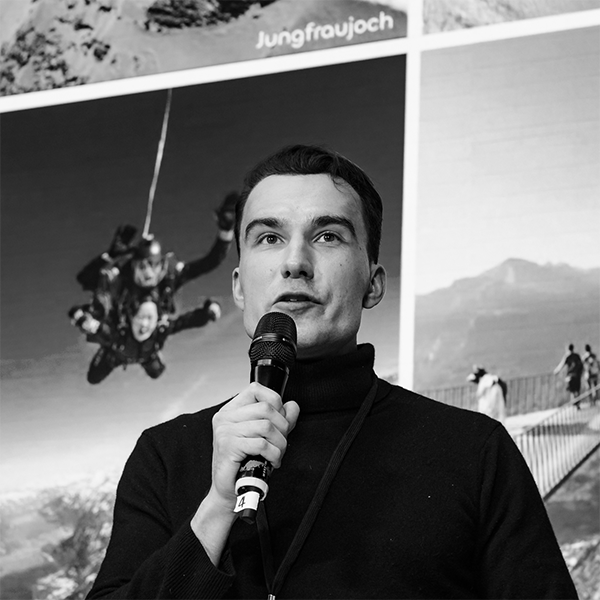
For more information, check out the entire program: https://utopianhours.it/en/programme/
ACROSS: What do the discussion formats look like?
Vaccai: As I said, Utopian Hours is a festival, not a typical conference. Of course, the keynote speakers will be on the main stage. There will also be some panels, i.e., open dialogs with up to 5 speakers. There are also many smaller formats and six closed-door roundtables where only invited persons can participate. Furthermore, we will have the Urbanites’ Fair, a mini-expo dedicated to organizations that deal with cities from different perspectives. Independent publishers, universities, and European collectives exhibit their work and ideas here. It is crucial to present and discuss the work of all the protagonists who shape and change cities, regardless of their known names. Around the program, there will be smaller events throughout different spots of the city that will give the whole thing a festival atmosphere.
ACROSS: Why is this a weekend event? This is quite unusual for conferences.
Vaccai: Utopian Hours is planned as a festival, not a classic conference. A weekend date fits the concept much better. Of course, our format has changed over the years, and we don’t rule out the possibility of it taking place on weekdays. However, we have already noticed the atmosphere is more relaxed because of the weekend date. It makes networking more relaxed. This comfortable atmosphere is also reflected in the program. Some of the events on the program resemble classic evening entertainment, but the topics are about urban planning and networking.
ACROSS: What role do shopping centers, retail, and placemaking play during your event?
Vaccai: We have a slightly different approach to the word placemaking. When discussing placemaking, we talk about light interventions in a public space, mainly buildings or squares, to involve communities and people and create new spaces in the city. Our approach to placemaking could be a valuable tool for companies and entrepreneurs dealing with the retail sector. We would all agree that a shopping center is way more interesting if it is not just a place to buy and sell things. It should be a place where you can enrich the offer for customers by thinking in a certain way about how to shop well. It is essential to offer more social and cultural activities and content and take care of these spaces’ design process. Utopian Hours is a crucial place of exchange here. It presents ideas that can easily be transferred to the world of shopping centers. But more importantly, it shows how all city areas must be considered together. We look for this in international stories and concrete case studies: They look at the city with all its areas and rethink it. Retail is an integral part of the city and people’s everyday lives.
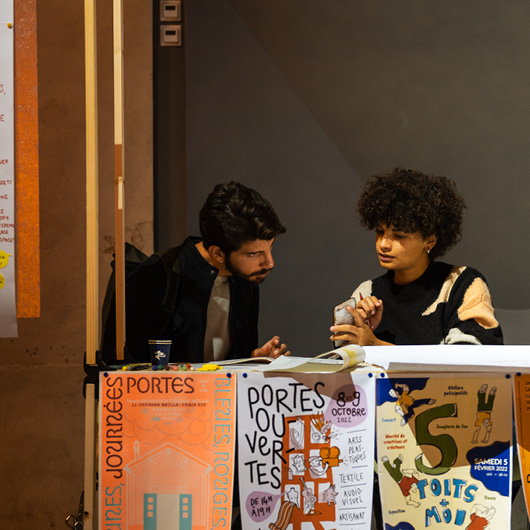
Utopian Hours is the festival of “city making”: the ideas, projects, and places improving life in the world’s cities. For three days, the festival gives voice to the key players in these changes: city makers, activists, architects, and innovators share their experiences, stimulating new visions of urban evolution and a reflection on the notion of the city.
- 30+ international speakers
- 200 + City officials, businesses, and practitioners from more than 40 Italian cities
- 100+ City officials from all over Europe
- 3500 Participants in 3 days
ACROSS: 50% of your audience is younger than 35 years old. Is that a coincidence?
Vaccai: Of course, these figures show the average, and our audience also changes slightly every year. But we indeed appeal to many young people. City-making has changed and includes many innovative areas that are often also very technological. Many young people are in these new professional and technological fields. But we also appeal to many students, as our festival is an excellent opportunity to see many international examples explained directly and to make contacts. In addition, we deliberately use a modern and young language intended not only to appeal to architects or urbanists but also to people who deal with cities from different perspectives and are involved in communication concerning cities and design. The language we use and the attention we pay to the visual aspect of the festival is a fascinating component for a younger audience. However, the representatives from companies and organizations are from every age group. So, we also managed to appeal to many young people, but it is not an event that focuses on the young target group.
ACROSS: How important are trade fairs and personal exchanges, especially in times of change and diverse challenges?
Vaccai: Conferences are an excellent opportunity to exchange knowledge and escape your bubble. Discussing topics and being confronted with other points of view is enriching and essential for your success. Good conferences are not just about imparting knowledge but about thinking ahead and being inspired. The second aspect is, of course, meeting people and making new contacts. This is, of course, all the more important in a world where a large part of professional exchange takes place online. We all know that meeting people in person makes a real difference for later collaboration. I have already explained how many different players are involved in City Making. With Utopian Hours, we want to create international connections between people and institutions. And we do that very well! Our festival is taking place for the eighth time in October and has grown and become more international every year.
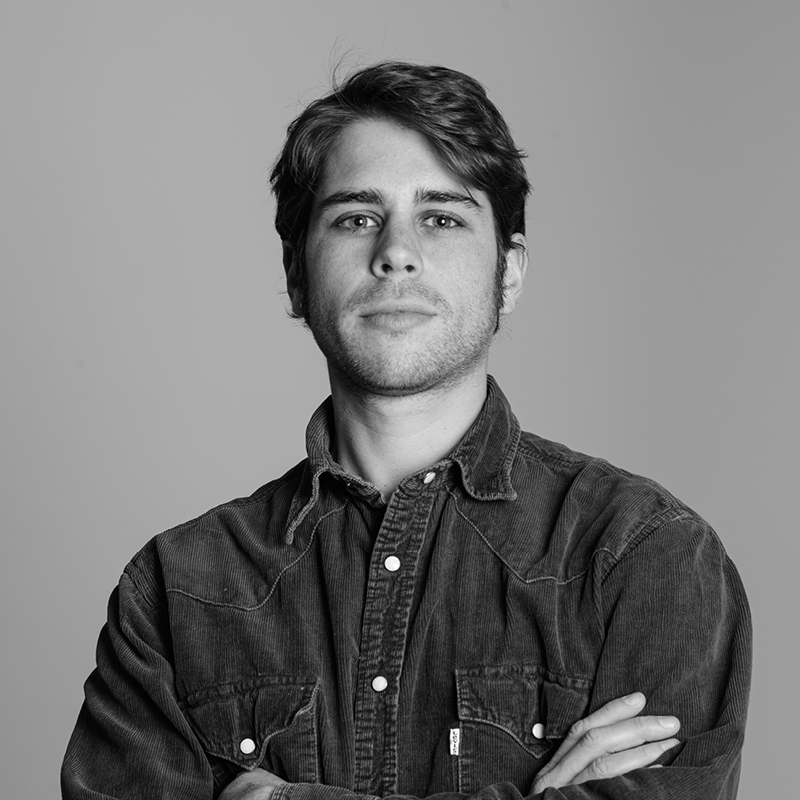
Daniele Vaccai
Daniele Vaccai is Project Developer at Stratosferica
